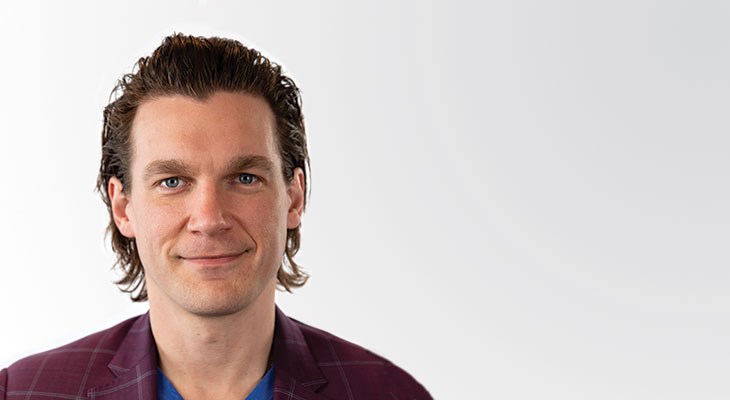Entrepreneurs often underestimate the value of social proof in the growth of their early-stage companies.
“If you have even one successful client, the best way to sell a product is to get that client to tell his or her friends about you,” says Aaron Christopher “A.C.” Evans, co-founder and CEO at Drips. “If another brand is saying, ‘Hey, you guys need to check this out,’ that gives you validation. It gives you street cred or social proof. Brands need to see other brands using you. If they don't, they're not going to use you. The end.”
Launched in 2016, Drips leverages artificial intelligence to help brands connect with consumers the way they prefer to be reached and when. Utilizing analytics of human behavior, the Drips platform automates lead and customer interactions via email, SMS text messages and automated calls.
The Akron-based company broke $10 million in revenue last year and hopes to double that figure in 2019.
“We want to stay profitable and eventually take some chips off the table,” Evans says. “But coupled with that — damn near equally — is we want to make sure that Drips establishes itself and remains as the leader in this category.”
We caught up with Evans to talk about lessons learned building a business from scratch, without the help of outside investors.
Trial and error
In the early days of Drips — not that long ago — Evans and co-founder and CTO Anthony Greco took all the money they made and poured it back into the business.
“We invested heavily in ourselves,” Evans says. “We could have pulled really significant income in those early years, but we didn't. We dumped it all into Drips. If you have a project or a product that you think is worth spending your time on, you need to also be willing to spend your money on it.”
Evans estimates he started 27 companies before he co-founded Drips.
“There were times where me and Tony literally had five different companies running all at the same time,” Evans says. “Some had a couple of employees, some had no employees. Some had people in the Philippines running them, some were completely automated. Others, I would do all the work.”
It was through all those different entrepreneurial experiences that Evans picked up another valuable lesson on where to direct the valuable income he was collecting: the creation of a minimum viable product.
“A lot of people think they need to build the perfect product or the perfect system before somebody will buy it,” Evans says. “That's absolutely not true. It’s all about finding a problem, creating a very simple solution and then iterating.”
By providing companies a way to access their customers’ personal time, brands are able to better scale their outbound marketing efforts, receive more qualified inbound calls and create goodwill with their prospects. The effort to create a base system to establish the concept was relatively simple and appealing to clients. The next step was a continuous effort to regularly update and improve the platform. This trial-and-error philosophy works even better when you can take advantage and learn from mistakes made by other people or companies.
“There's a saying that humans only learn from mistakes, but they don't necessarily have to be ours,” Evans says. “I found some of my best kind of leaps into the future being on the back of somebody else's story. Somebody else telling me like, ‘Oh, yeah, don't do that. This is what happened to me.’”
Opposites attract
Another lesson Evans learned early on was the value of having a business partner who shares a different set of skills than you do.
“I’m a great visionary, but I needed a strong integrator,” Evans says. “That's why I partnered with Tony. We've had a dozen-plus businesses together. I do the stuff that he doesn't want to do. He is a monster of a developer and solution architect. All the partnerships I've had that failed have been when I partnered up with somebody who did all the same stuff that I did. Now you're now battling over whose ideas are better or whatever. When you have somebody who truly complements you like a puzzle piece, like I believe Tony and I do for each other, there's no fight in it.”
Funding formulas
Evans is proud that he and Greco have been able to build Drips without investor support. But things do change as a business grows and evolves.
“There have been a number of companies over the years that have been interested in buying us,” Evans says. “None of it came to fruition for one reason or the other. But yeah, we're talking to large PE firms now and to investment bankers, just kind of talking through it all to see what we want to do.”
His biggest fear is putting in all the work to establish Drips as the leader in the conversational texting/marketing space, then watching another bigger company swoop in and “blitz the market.”
“I'm going to be attached to Drips for some time,” he says. “We still have a lot to build, a lot to grow. What's probably more likely is if we can keep growing this thing and double or triple again over the next couple years, it may require a different level of executive leadership than I'm capable of providing.”
For now, Evans will keep his head down and continue working.
“Do a good job, build a good product that serves a big need and make sure the story is told,” he says. “It’s still what matters and it's the still the thing that companies pay the least attention to.”




